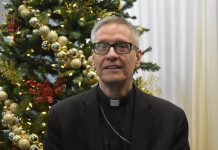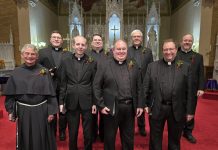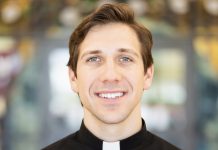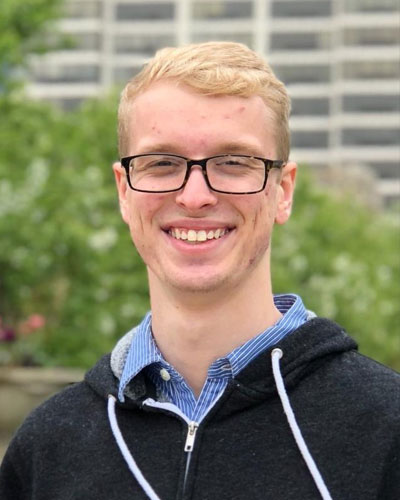Column by Justin Kirkland
Recently, as he campaigned through South Carolina, former Vice President Joe Biden was denied Holy Communion during a Sunday Mass. The priest, Father Robert Morey, Pastor of Saint Anthony Catholic Church in the Diocese of Charleston, decided to deny the Democratic candidate reception due to his public stance in favor of pro-choice policies. Though this isn’t the first time a priest or bishop has denied the Eucharist to public figures, the question must be asked, why?
Receiving the Eucharist is a great privilege for Catholics, signifying that we are in Communion with God, His Holy Church, and with one another as a faith community. With this reception, we are publicly confirming and declaring that we believe all of Her teachings. If then, for example, I were to find myself actively pursuing that which is contrary to the Church’s teachings, namely committing mortal or grave sin, I should not receive.
The Catechism of the Catholic Church makes this clear for us that we may not receive the very Body and Blood of Christ in a state of mortal sin, stating:
The Lord addresses an invitation to us, urging us to receive him in the sacrament of the Eucharist: “Truly, I say to you, unless you eat the flesh of the Son of man and drink his blood, you have no life in you.” To respond to this invitation we must prepare ourselves for so great and so holy a moment. St. Paul urges us to examine our conscience: “Whoever, therefore, eats the bread or drinks the cup of the Lord in an unworthy manner will be guilty of profaning the body and blood of the Lord. Let a man examine himself, and so eat of the bread and drink of the cup. For anyone who eats and drinks without discerning the body eats and drinks judgment upon himself.” Anyone conscious of a grave sin must receive the sacrament of Reconciliation before coming to Communion. (CCC 1384-1385)
Politicians who deliberately and with full knowledge support abortion, euthanasia, and other forms of grave sin, would find themselves in the state of mortal sin because they are publicly advocating and promulgating these sins and can be denied Holy Communion based on this public support. When these figures, in their actions, support such grave sins, they lead us to believe they are willingly placing themselves outside of the Church.
In asking those who have committed mortal sin without receiving the Sacrament of Confession not to receive Communion, the Church is not trying to withhold the graces of the Sacrament, or trying to bully us into blindly following Her ‘rules.’ But instead, the Church is showing us a form of love and mercy and doesn’t want us to commit a further sin by partaking in the Eucharist in a profane or sacrilegious way. The Church asks us to search and to find the True, the Good, and the Beautiful in Her teachings. To come back and receive the mercy of the Father, receive the very Body and Blood of Christ, to recommit ourselves to becoming saints, and to give our lives just as Christ did for us.
In these cases when a public figure is denied reception of the Eucharist due to mortal sin, or when any person commits any mortal sin, the Church asks us to make a good confession and to turn from our past sins. For a public figure, they must also publicly renounce their prior support. The Church has an obligation to call for conversion of the faithful back to full communion with our Lord because at the very heart of Her mission, She has been commissioned to go out and spread the Good News of Jesus Christ.
Justin Kirkland has a Bachelor’s degree in Theology from Franciscan University of Steubenville and is pursuing a Master’s degree in Theology. He is employed in the Diocese of Altoona-Johnstown Offices of Communications, Human Resources, and Youth Protection.































